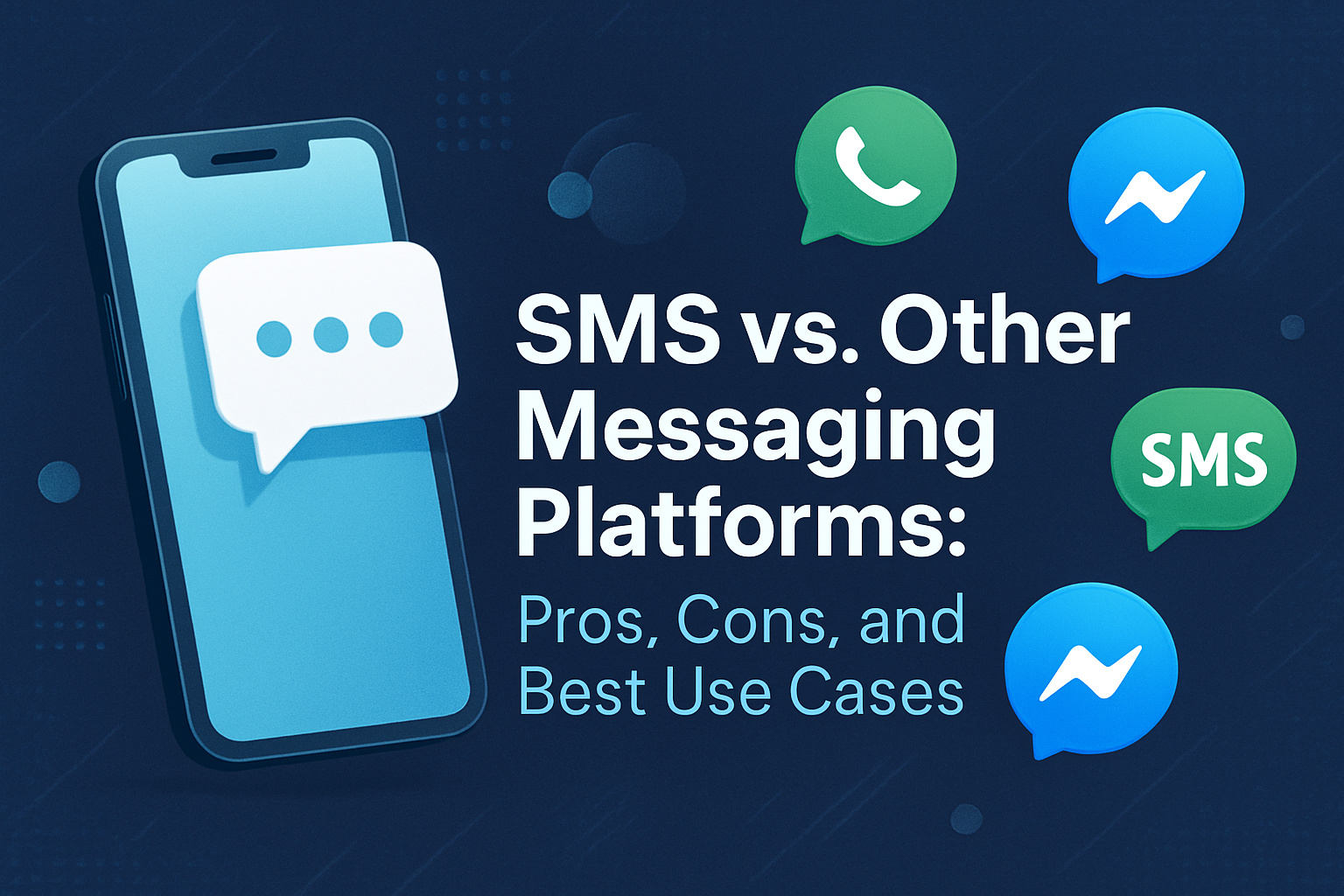Why SMS Stands Out
Text messaging, or SMS (Short Message Service), has become the backbone of direct business-to-customer communication. But what makes SMS uniquely reliable compared to other channels?
1. Near-Universal Reach
- Works on Every Mobile: SMS doesn’t require internet or smartphones—any mobile device with signal can receive texts.
- Global Penetration: Over 7 billion people use phones globally, putting SMS within reach of almost everyone, regardless of geography or device type.
2. High Open and Read Rates
- Immediate Attention: Around 98% of SMS messages are opened, with most read within minutes, far outpacing email or app notifications.
- No Spam Folders: SMS bypasses clutter and is delivered directly to the recipient’s message inbox.
3. Dependable Delivery
- No Internet Needed: Unlike messaging apps, SMS works even without data or Wi-Fi, ensuring that your message gets through in low-connectivity environments.
- Minimal Technical Hassles: There’s no need to install apps or manage device compatibility.
4. Consistent Engagement
- Proven Response Rates: SMS garners higher response rates than email or push notifications, making it particularly effective for time-sensitive updates, reminders, or verification codes.
- Familiarity and Trust: People recognize and trust SMS, using it for everything from banking updates to appointment reminders.
5. Regulatory Support
- Strict Compliance: SMS is regulated in most countries, giving users protections and helping maintain trust around message reliability.
SMS vs. Other Messaging Platforms: Pros, Cons, and Best Use Cases
Comparison Table
| Feature | SMS | Other Messaging Apps (WhatsApp, Messenger, etc.) |
|---|---|---|
| Network Dependency | Works on 2G/3G/4G/5G – no internet required | Requires data or Wi-Fi |
| Device Support | All phones (smart & basic) | Only smartphones/tablets |
| Open Rate | Very high (up to 98%) | Varies; often lower than SMS |
| Message Length | 160 characters per SMS | Longer, supports multimedia |
| Security & Compliance | Strictly regulated, opt-in/out required | Platform policies vary |
| Rich Media | Limited (text, links, short codes) | Supports images, videos, stickers, etc. |
| User Experience | Simple and universal | Rich, interactive—requires app familiarity |
| Cost (for businesses) | Pay-per-message | May be free or lower-cost for bulk/chat interaction |
Pros and Cons
SMS
- Pros
- Unmatched reach and compatibility.
- Instantaneous delivery and high engagement.
- Simplicity—no setup barriers for end users.
- Effective for alerts, authentication, reminders.
- Cons
- Character limit (160 chars per message).
- Limited to plain text (though some carriers support MMS for basic images).
- May incur per-message costs for businesses.
Other Messaging Platforms
- Pros
- Support for multimedia content—images, files, interactive elements.
- Group chat, automated bots, integrations.
- Often ideal for ongoing conversations or customer service.
- Cons
- Limited by need for internet access and device compatibility.
- Not all customers use the same app.
- Platform-specific rules, possible data privacy considerations.
Best Use Cases
SMS
- Transactional Messages: One-time passwords (OTPs), appointment reminders, shipping updates.
- Critical Alerts: Emergency notifications where speed and reliability matter.
- Authentication: Two-factor authentication codes.
Messaging Apps
- Rich Media Campaigns: Promotions using images, catalogs.
- Customer Support: Ongoing chat, bot-facilitated support.
- Community Building: Group engagement, feedback solicitation.
Putting It All Together
- If your goal is to guarantee message delivery quickly and reliably, SMS remains unmatched.
- For interactive campaigns or deeper engagement—with a compatible audience—consider leveraging modern messaging apps alongside SMS for a holistic communication strategy.
- The most effective businesses combine SMS’s reach and reliability with the rich features of chat apps, offering customers choice and convenience.
Optimizing your communication mix not only maximizes engagement but also builds trusted, frictionless connections with your audience.
